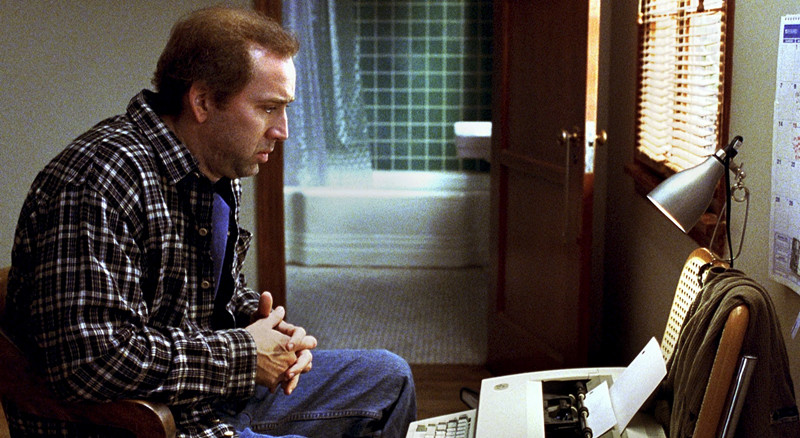How long does it take to write a screenplay?
October 21, 2024
An aspiring screenwriter might wonder: how long does it take to write a screenplay?
A few weeks? A few months? A few years??
Starting a screenplay can be a daunting prospect, especially when you don't know how long it takes to write an average feature script (which is typically between 90 to 120 pages). If you had an idea of what's a standard time frame, it could give you much-needed guidance and help you write at a more professional pace.
The Industry Standard Time Frame
Going by a standard writer agreement in the film industry, writers are usually given a 12-week time frame to start and finish a script. So most professional screenwriters complete a first draft of a screenplay within 12 weeks (just under 3 months).
But this is specifically for assignment jobs (i.e., a producer or studio is paying you to write a script); it doesn't apply to you writing a spec script (i.e., a script you haven't been paid for or officially commissioned to write). In addition to most aspiring screenwriters, many professional screenwriters do write on spec (and sometimes these specs get purchased and turned into produced films).
So this leads us to a more specific question: how long does it take to write a spec script?

How Long It Takes the Pros to Write a Spec Script
After a studio bidding war, Joe Eszterhas was given 3 million dollars for his spec script Basic Instinct. How long did it take Eszterhas to write a 3 million dollar screenplay, which was subsequently turned into a classic film that took in $352.9 million at the box office and turned Sharon Stone into a movie star?
Well, according to Eszterhas: 13 days.
"Always lie about your first draft. I told people I'd been working on the script of Basic Instinct for years when I sold it for a record price. When the movie became the biggest hit of 1992, I told the truth: It had taken me 13 days to write it."
— Joe Eszterhas (The Devil's Guide to Hollywood: The Screenwriter as God!)
Another famously prolific screenwriter was John Hughes, who according to a logbook he kept wrote the script for one of his most iconic films, Ferris Bueller’s Day Off, in less than a week. The story itself takes place in a span of one madcap day, so Hughes writing the script in a short time frame no doubt added to its spontaneous and kinetic feeling. Sometimes writing in a quick, inspired burst can give your writing an off-the-cuff quality that’s palpable on the page.
On the flip side, according to Quentin Tarantino, it took him over a decade to write the script for his acclaimed film Inglourious Basterds. The original drafts were more of a straight-forward, Dirty Dozen-style "bunch-of-guys-on-a-mission" story, but Tarantino started thinking the script could be his "masterpiece" and decided to expand and revise the story, bringing out more humanity and complexity (most notably in the Shosanna Dreyfus plotline).
So going by these professional screenwriters, writing a screenplay can take anywhere from a few days to a decade!

The Right Time Frame for the Right Story
As crazy as that above time window sounds, it helps to illustrate the following point: how long it takes to write a screenplay depends largely on the story you're telling.
Ferris Bueller's Day Off is a teen comedy about a high school student who plays hooky and took John Hughes a few days to write it. Basic Instinct is an erotic thriller about a police detective who gets involved with a murder suspect and took Eszterhas over a week to write it. Inglourious Basterds is a WWII epic about two different plots to assassinate Nazi Germany’s leadership and took Tarantino a decade to write it. Different kinds of stories require different timetables.
If your story involves just a few characters, not too many locations and covers a shorter time period, you can potentially write it much quicker than a script involving several characters, numerous locations and a longer time period. Also if your script is a more complicated story and is more dialogue-driven than say a typical action film or thriller, it’ll likely take you longer to write it.
Ultimately, it comes down to what kind of story you want to tell.
And how much time you have to write it.

Think Pages Not Days
Along with a personal work routine, it's helpful to create deadlines for yourself and even a daily page count quota. Thinking more in terms of pages per day than how many days is better for productivity and for your creative morale. This will also help you to stay focused on the daily task at hand and you'll find it much easier to finish your script this way. Consistency is the most important thing; you should be writing 2 to 7 pages every day.
I, myself, try to write 5 pages a day: I find this is a reasonable daily page-count quota and it usually leads to a screenplay getting finished within two months (which lines up with the writer agreement time frame of 12 weeks). Grant it, I easily write at this pace because I've been writing on assignment along with specs for many years now. However, even if you've never had a writing job before, it's definitely possible to discipline yourself and write 5 pages a day.
And don't get discouraged if the pages aren't the best thing ever written: simply finishing them and getting into a daily rhythm will make you a more productive writer and a better one. Like with any skillset or trade, the more frequently and consistently you do something, the better you'll get over time.
So whether you're writing a contained screwball comedy or a globe-trotting historical adventure, the time frame is the same: it will take as long as it needs to take.
Not month by month or day by day.
But word by word and page by page.
Note: this article has been updated from a piece that appeared on August 16, 2023.
Written by: Edwin Cannistraci
Edwin Cannistraci is a professional screenwriter. His comedy specs PIERRE PIERRE and O’GUNN both sold with more than one A-list actor and director attached. In addition, he’s successfully pitched feature scripts, TV pilots and has landed various assignment jobs for Universal, Warner Bros, Paramount and Disney.- Topics:
- Screenwriting Career




